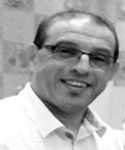| Biography | |
|---|---|
 Prof. Azel Zine University of Montpellier, France |
|
| Title: Engraftment, migration and differentiation of human pluripotent stem cell-derived otic progenitors in the damaged adult cochlea | |
| Abstract:
Most cases of sensorineural deafness are caused by degeneration of hair cells. Although stem/progenitor-cell therapy is becoming a promising treatment strategy in a variety of organ systems, cell engraftment in the adult mammalian cochlea has not yet been demonstrated.
The primary objective of this study is to differentiate characterized early human otic progenitor cells (hOPCs) from induced pluripotent stem cells (iPSCs) and, then to explore in vivo engraftment of hOPCs into animal model of ototoxicity.
The hOPCs were generated from the induction of hiPSCs in a monolayer culture system as previously reported [Lahlou et al., 2018]. The differentiation of hOPCs was monitored by the expression of a comprehensive panel of otic lineage markers by qpcr and immunocytochemistry analyzes. Prior to cell engraftment, hOPCs were pre-labeled with the fluorescent lipophilic tracer-Dil and transplanted by cochleostomy into the basal turn of the cochleae of ototoxin-treated guinea pigs. We showed successful cell transplantation of hOPCs in the damaged cochlea. The delivered hOPCs migrated throughout the cochlea, engrafted in non-sensory regions and survived up to four weeks post-engraftment. Some of the engrafted hOPCs responded to environmental cues within the damaged cochlear sensory epithelium and displayed molecular features of early sensory cell differentiation. We confirmed these results with hair cell progenitors derived from Atoh1-GFP mice as donor cells using the same in vivo delivery assay [Lopez-Juarez et al., 2019].
The ability of human otic progenitor cells to engraft, migrate and initiate sensory differentiation in the damaged auditory epithelium is crucial towards developing a cell-based cell therapy to cure deafness.
| |
| Biography:
Professor Azel ZINE has his expertise in the study of development and regeneration of the peripheral auditory system. He has made seminal contributions to the understanding of the Notch signaling and HES gene roles in the development of auditory hair cells in mammals. His scientific contributions have all been well thought out and comprehensive, published in some of highly peer reviewed journals, such as Development and J Neuroscience. His work with applying the degradation resistant JNK inhibitor (D-JNK-1) to the inner ear as an otoprotective drug has also been notable and the results reported in that initial work has led to clinical trials in Europe that are in progress under the direction of Auris Medical-Biotechnology Company. Dr. Zine’s current research in the field of stem cells biology is again ground breaking and intended to implement a therapeutic use of human stem cell technology to cure deafness, the most common sensory deficit in humans.
| |
